
I’ve said it before, and I’ll say it again – hormones impact everything. Not just our periods and our moods, but literally everything. This series is meant to highlight some of the OTHER issues in women’s health – those that extend beyond just our breasts and our lady gardens, and touch on some of the other issues we don’t even realize could be related to our hormones.
So on that note, let’s dive in to Hormones and… Histamine Intolerance.
WTF is Histamine Intolerance?
Let’s be real. None of us had heard of histamine intolerance a decade ago. So why are we talking about it now? Medicine has recognized issues of histamine intolerance for over 60 years, but only recently is this complicated issue being discussed openly in medical journals and online.
Histamine intolerance occurs when you either have too much histamine, usually from ingesting it in foods, or you can’t break it down, due to issues with your diamine oxidase (DAO) enzyme.
Histamine is a molecule we usually associate with an allergic reaction. Histamine is the star player in hives, itchy eyes, swelling throat, and runny nose that we associate with allergies. Interestingly histamine is also involved in brain function, triggering stomach acid production, and supporting healing after injuries.
How Do I Know if I Have Histamine Intolerance?
Well, now this is the problem. It can be VERY hard to recognize a histamine intolerance, and many people are not being appropriately diagnosed. This is mostly because the symptoms of a histamine intolerance look so much like many other conditions. Many doctors are starting to consider histamine intolerance for patients with complex symptoms that aren’t responding appropriately to other treatments.
People with histamine intolerance will experience an average of 11 symptoms, in multiple systems of their body whenever their histamine levels become too high (from diet or lack of DAO). From neurological symptoms like headaches and migraines, to skin rashes, digestive concerns, fatigue, menstrual cycle changes, and more, it is no wonder that people are baffling their doctors when they are suffering from histamine intolerance.
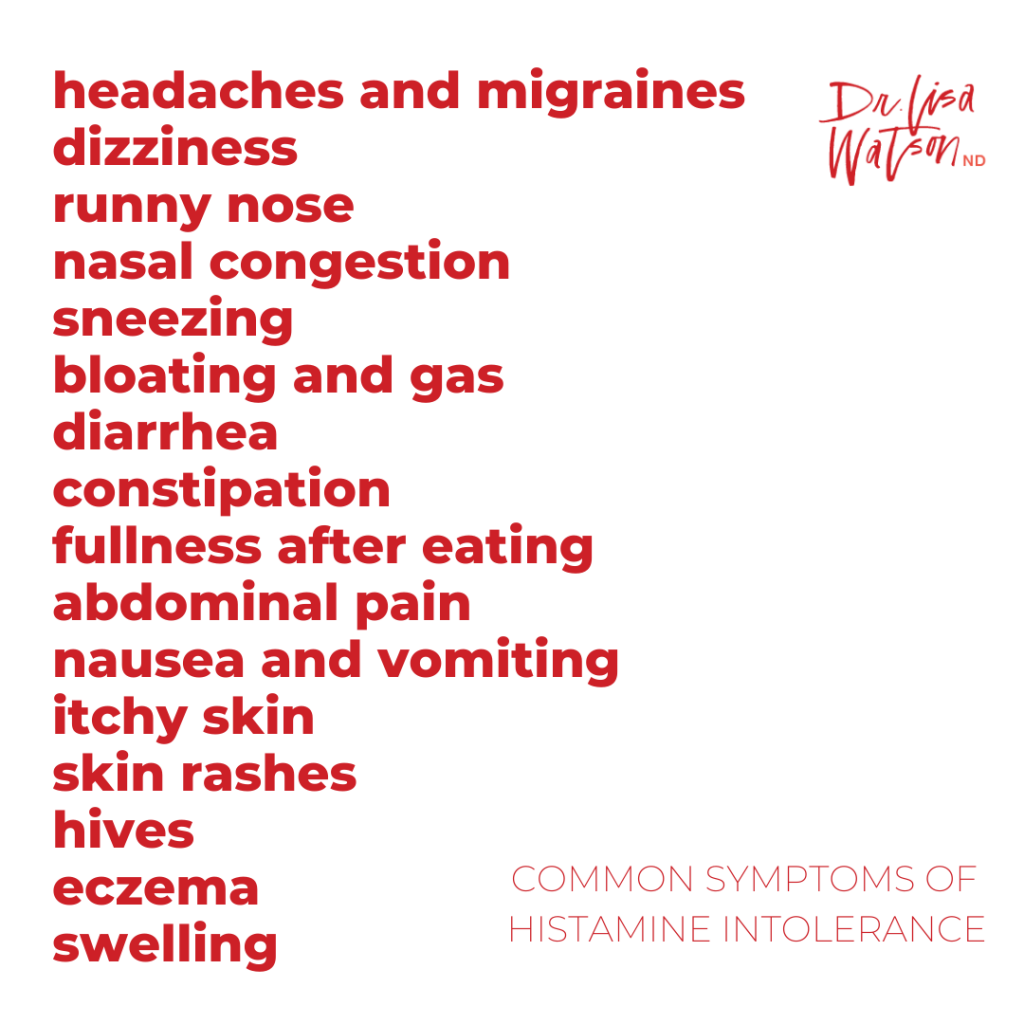
Diagnosing Histamine Intolerance
Getting a diagnosis of histamine intolerance is a bit easier than getting your doctor to acknowledge this is a possible cause of your symptoms. It’s not super easy, but it’s something you can work on with your Naturopathic Doctor (or your Medical Doctor if they’re game).
The first step is ruling out allergies (through skin prick testing). Then we need to make sure you aren’t taking a medication that can mess with your ability to make sufficient DAO enzymes to breakdown histamine. And if you put a checkmark next to both of those, then it’s time to try a low histamine diet for four weeks, or use a DAO enzyme supplement to see how it goes. Reach out if you need guidance on how to do this step properly!
You can also talk to your allergist about the histamine-50 test. Rather than the standard 20 minute skin test for histamine reactions, people with histamine intolerance will still have a swelling (a “wheal”) after 50 minutes. So chat with your allergist about this if you want further confirmation of a histamine intolerance.
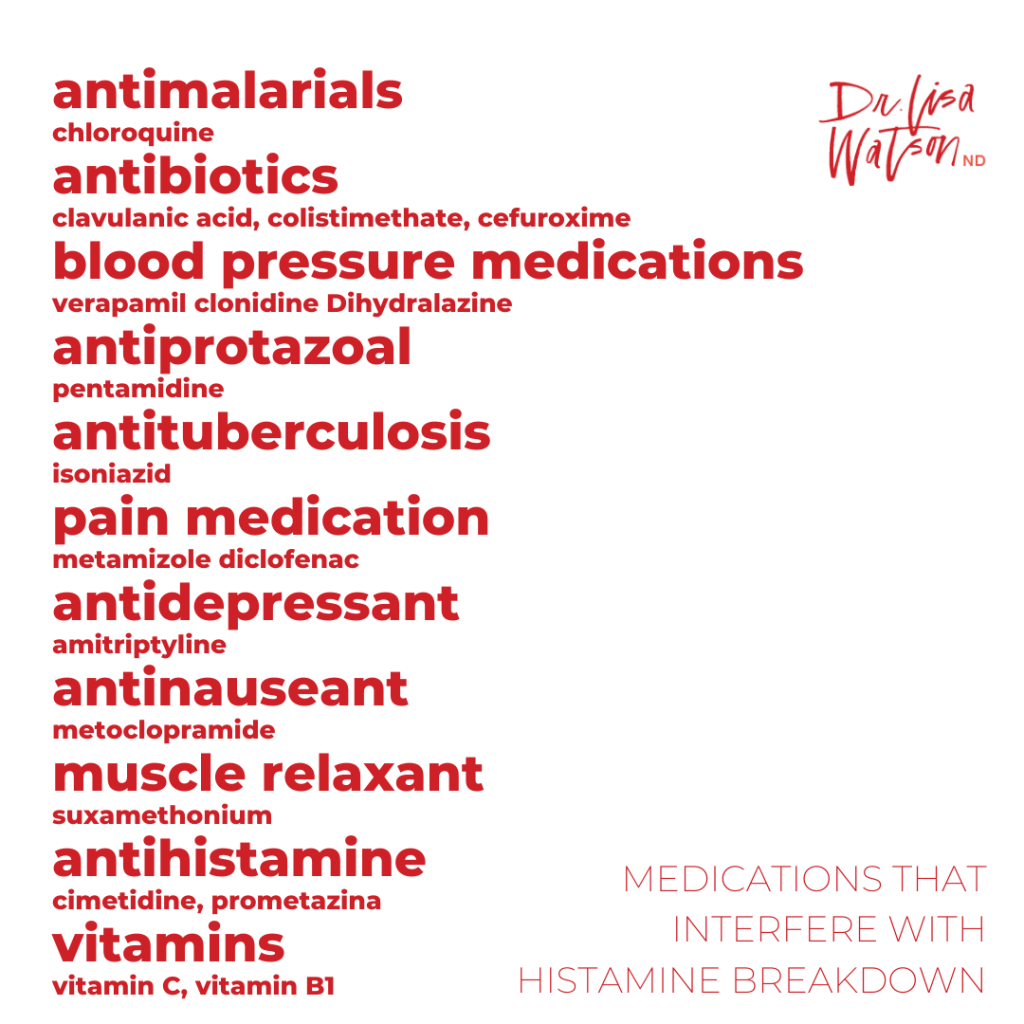
Hormones and… Histamine
Now you’re probably thinking “But Dr. Lisa, what does all this have to do with my hormones??” Well my beloved hotmesses, the answer is A LOT.
High levels of estrogen, or estrogen dominance, majorly impacts our ability to breakdown histamine, leaving women in their 30s and 40s especially vulnerable to histamine intolerance. The mast cells that store, and eventually release histamine, have receptor sites for estrogen. When estrogen levels are high in can trigger the release of histamine. This is further exacerbated by emerging research that high estrogen decreases the production of the DAO enzyme, necessary for breaking down histamine.
Of course, it’s not just our hormones. Other causes of histamine intolerance, other than our hormones, include medications that block DAO function, gut disorders like bacterial dysbiosis, leaky gut syndrome and inflammatory bowel disease, chronic stress, nutritional deficiencies (especially zinc, copper, vitamin B6, and vitamin C) and eating foods that contain histamine, or foods that block our ability to breakdown histamine.
Next Steps
You are not alone in trying to understand and improve your health. That’s what I’m here for! Navigating through trying to understand WTF is happening, and then putting together a plan specific for you doesn’t need to be your responsibility. I’m here to help. Just reach out, book a fifteen minute discussion, and let’s see if we were meant to work together.
Selected References
Comas-Basté O, Sànchez-Pérez S, et al. Histamine Intolerance: The current state of the art. Biomolecules 2020, 10(8):1181.
García-Martín E., Ayuso P., Martínez C., Agúndez J.A.G. Improved analytical sensitivity reveals the occurrence of gender-related variability in diamine oxidase enzyme activity in healthy individuals. Clin. Biochem. 2007;40:1339–1341
Hamada Y., Shinohara Y., Yano M., Yamamoto M., Yoshio M., Satake K., Toda A., Hirai M., Usami M. Effect of the menstrual cycle on serum diamine oxidase levels in healthy women. Clin. Biochem. 2013;46:99–102
Schnedl WJ, Lackner S, et al. Evaulation of symptoms and symptom combinations in histamine intolerance. Intest Res 2019 Jul;17(3):427-433.



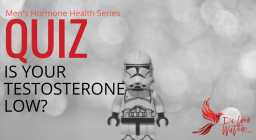
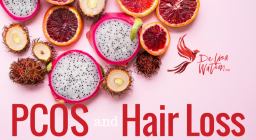
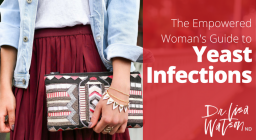
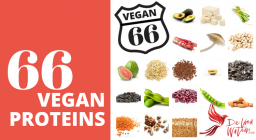
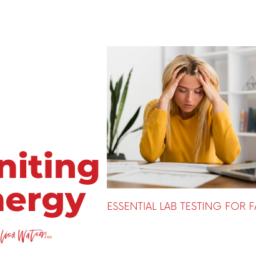

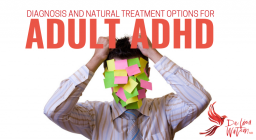
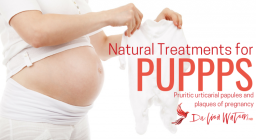



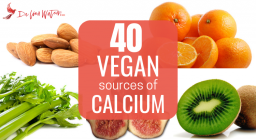

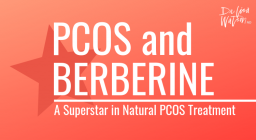
[…] 0 By Lisa Watson Food Medicine Functional […]